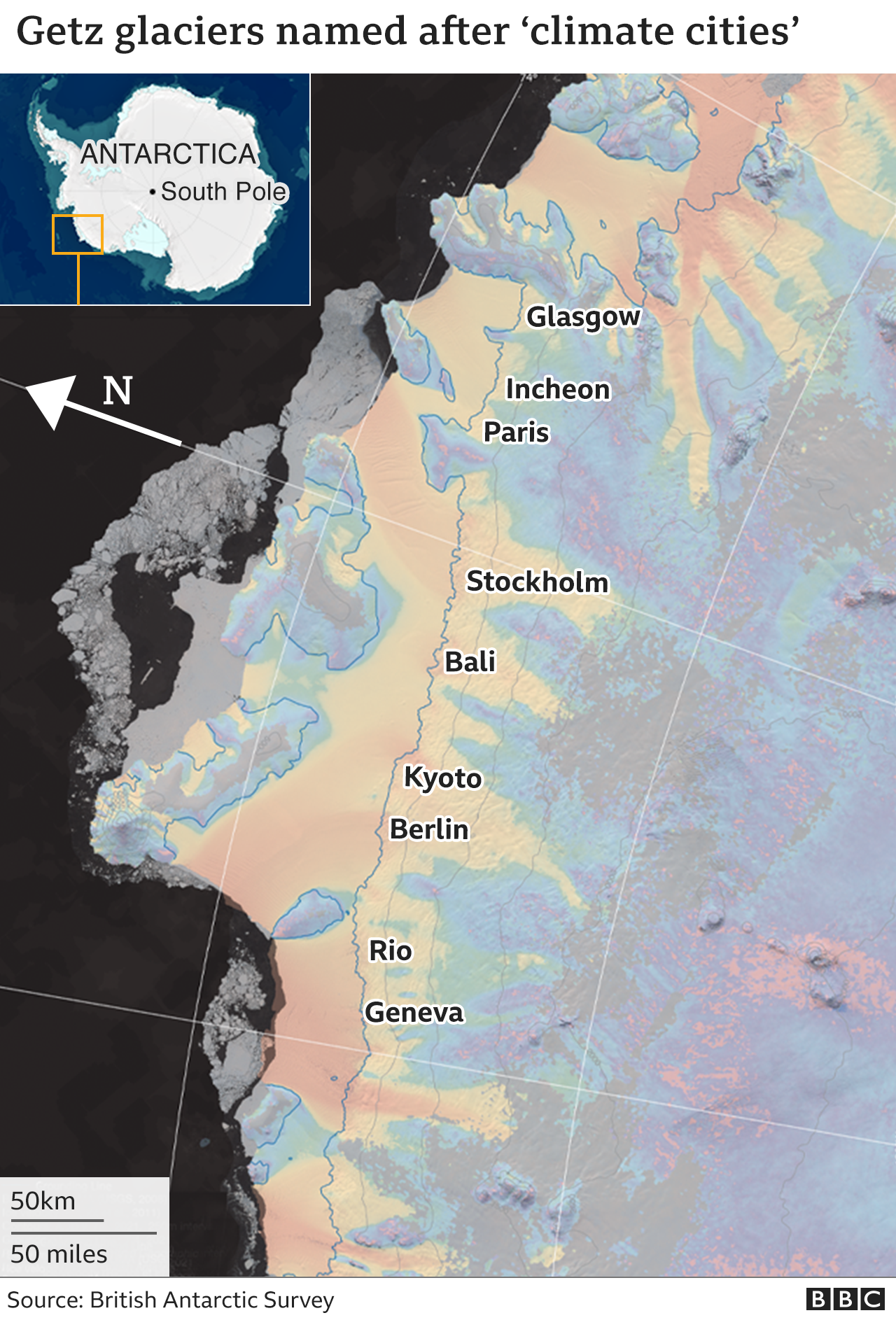ForumIAS announcing GS Foundation Program for UPSC CSE 2025-26 from 19 April. Click Here for more information.
ForumIAS Answer Writing Focus Group (AWFG) for Mains 2024 commencing from 24th June 2024. The Entrance Test for the program will be held on 28th April 2024 at 9 AM. To know more about the program visit: https://forumias.com/blog/awfg2024
What is the News?
A glacier in Antarctica has been experiencing rapid melting. It has now been named Glasgow Glacier in honour of Glasgow, Scotland.
This is because Glasgow is hosting the 26th session of the Conference of the Parties (COP 26) to the United Nations Framework Convention on Climate Change (UNFCCC).
Besides Glasgow Glacier, eight other nearby glaciers will also carry the names of cities where important climate reports were issued or policies were agreed.
Why were these Glaciers named after cities?

Scientists from the University of Leeds in England have studied several glaciers in the Getz basin of Antarctica.
They have found that 14 glaciers in this region are thinning by an average of 25% between 1994 and 2018 due to climate change.
They also found that 315 gigatonnes of ice were lost from the region in the last 25 years.
Hence, they were naming these glaciers after cities will be a symbol of what is at stake and is also a great way to celebrate the international collaboration on climate change science and policy over the last 42 years.
About the other glaciers named after cities
Geneva: Named after the world’s first climate conference in 1979. The conference set up the Intergovernmental Panel on Climate Change (IPCC).
Rio: Commemorates the first Earth Summit in 1992 where the United Nations Framework Convention on Climate Change (UNFCCC) was opened for signatures.
Berlin: It is named after the first Conference of Parties (COP) in 1995 which assessed the progress of dealing with climate change.
Kyoto: It commemorates the formal adoption in 1997 of the protocol that legally bound developed countries to emissions reduction targets.
Bali: It marks the release of the IPCC fourth assessment report (AR4) in 2007.
Stockholm: It honours the IPCC fifth assessment report (AR5) approval session in 2014.
Paris: It memorializes the agreement of a legally binding treaty in 2015 that aimed to limit global temperature rise to well below 2C, preferably below 1.5C.
Incheon: It marks the meeting of the IPCC in 2018 to consider the special report on the impacts of 1.5 degrees of warming and the difference in risks of going to 2C.
| Must read: UNFCCC Summits |
Source: This post is based on the article “‘Glacier in Antarctica named after Glasgow climate summit” published in Indian Express on1st November 2021.




